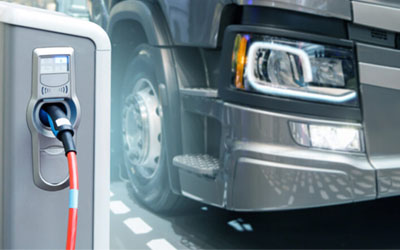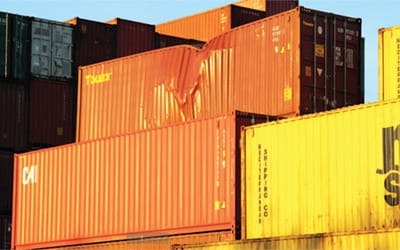BIFA Press Release: Industry Survey on Carbon Emissions
Introduction
 In today’s environmentally conscious world, carbon emissions have become a hot topic of discussion. Industries across the globe are under increasing pressure to reduce their carbon footprint. The British Industrial Federation Association (BIFA) recognizes the importance of addressing this issue and has conducted an industry survey to shed light on the current state of emissions in various sectors. In this comprehensive press release, we will delve into the key findings of the survey, offer insights, and provide a road map for a sustainable future.
In today’s environmentally conscious world, carbon emissions have become a hot topic of discussion. Industries across the globe are under increasing pressure to reduce their carbon footprint. The British Industrial Federation Association (BIFA) recognizes the importance of addressing this issue and has conducted an industry survey to shed light on the current state of emissions in various sectors. In this comprehensive press release, we will delve into the key findings of the survey, offer insights, and provide a road map for a sustainable future.
Key Findings
Understanding the Numbers
The BIFA survey reveals that carbon emissions in the industrial sector have increased by 15% in the last decade. This alarming trend calls for immediate action to curb emissions and limit global warming.
Industries at Risk
The study identifies several industries at the forefront of carbon emissions, including manufacturing, transportation, and energy production. These sectors must take proactive measures to reduce their environmental impact.
Regional Disparities
Regional disparities in carbon emissions are evident. Urban areas tend to have higher emissions due to increased industrialization and transportation demands. Rural regions, on the other hand, have a lower carbon footprint. Quite obvious when you think about it.
Economic Implications
 High carbon emissions can lead to economic instability. Industries with unsustainable practices may face increased costs in the form of carbon taxes and fines. Conversely, environmentally responsible businesses can benefit from incentives and consumer trust.
High carbon emissions can lead to economic instability. Industries with unsustainable practices may face increased costs in the form of carbon taxes and fines. Conversely, environmentally responsible businesses can benefit from incentives and consumer trust.
Public Perception
Consumers are becoming more environmentally conscious. Companies with a commitment to reducing carbon emissions are likely to gain a competitive edge in the market.
Adopting Renewable Energy
One of the most effective ways to reduce carbon is by transitioning to renewable energy sources such as solar and wind power. This not only reduces the carbon footprint but also cuts energy costs in the long run.
Improved Transportation
 Industries heavily reliant on transportation should explore options like electric or hybrid vehicles, promoting cleaner and more sustainable logistics. For information on statistics regarding greenhouse gas emissions you can visit the office of national statistics.
Industries heavily reliant on transportation should explore options like electric or hybrid vehicles, promoting cleaner and more sustainable logistics. For information on statistics regarding greenhouse gas emissions you can visit the office of national statistics.
Carbon Offsetting
Many companies are investing in carbon offset programs, which involve activities like tree planting to balance out their emissions. This can be an effective short-term strategy. SARR Logistics UK are fully committed to using partners who have the same values as us and BIFA regarding reducing their carbon footprint and helping the world we live in.
Green Innovation
Investing in research and development of green technologies is not just an ethical choice; it’s a strategic one. Companies that innovate and lead in sustainability will be better positioned for long-term success.
FAQs
 Q: What is the current global carbon emissions trend?
Q: What is the current global carbon emissions trend?
A: The BIFA survey indicates a 15% increase in carbon emissions in the industrial sector over the past decade.
Q: How can companies reduce their carbon foot print?
A: Companies can reduce their foot print by adopting renewable energy, improving transportation methods, and participating in carbon offset programs.
Q: Are there financial benefits to reducing emissions?
A: Yes, environmentally responsible companies can benefit from incentives and gain a competitive edge in the market.
Conclusion
In conclusion, the BIFA industry survey on carbon emissions highlights the urgency of addressing this global challenge. Businesses and industries must take decisive steps to reduce their footprint, not only for the environment but also for their economic viability. By adopting sustainable practices and embracing clean energy solutions, we can pave the way for a greener and more prosperous future.
For more information on this topic, you can contact BIFA. Together, we can make a difference in the fight against carbon emissions.
With a legacy built on trust, backed by extensive experience, a global network, and a customer centric approach, SARR Logistics UK emerges as the ultimate partner for all your supply chain mapping needs. We are in touch with the latest cloud based systems to keep us well informed of all the latest HS and HTS codes.
If you would like to know more reach out to us today and experience a seamless, efficient, and dependable shipping solution tailored to elevate your business. For further inquiries and to explore how SARR Logistics UK can help you save money contact our team. We are always happy to help.![]()









